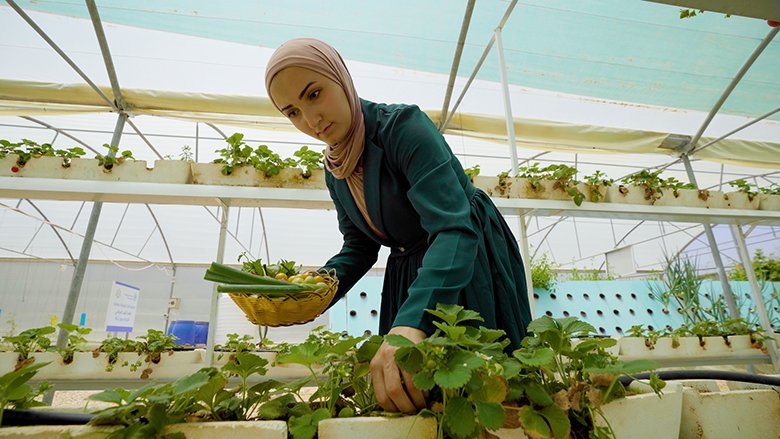Faced with less water, more intense droughts, warmer temperatures and disruptions in global food systems, Jordan is nurturing a new generation of climate-smart farmers while transforming its agri-food sector to become more resilient while creating jobs and greater value. The World Bank’s new agriculture program in Jordan, appropriately called "My Land" (or ARDI), is helping to strengthen food systems by spearheading more water-efficient and climate-resistant farming practices. Approved in 2022, ARDI (the Agriculture, Resilience, Value Chain Development and Innovation project) will provide about 30,000 farming households with financing. The $125 million project hopes to generate around 12,000 employment opportunities, particularly for women and youth who have often been excluded from the sector.
Women farmers such as Seham Bani Mustafa, who lives in Souf, a town in the Al-Burj area about 60 km from the capital Amman, are already seeing results. A small-scale fruit farmer, she received a grant for a new rainwater harvesting system under the program, which means she no longer waits for water to be delivered every two weeks. Now, she harvests water during wetter winter months and this nourishes her apricots, peaches, peas, beans and other vegetables.
"No matter how cautious one is about water usage, it's not enough," she said about previously having to rely on water deliveries. "But now with the reservoir, the situation has changed. We no longer worry about having access to water. We became self-sufficient," she said, adding that her small orchard produces pesticide-free fruits with the excess sold in local markets. She is also making a living by creating traditional soaps.

